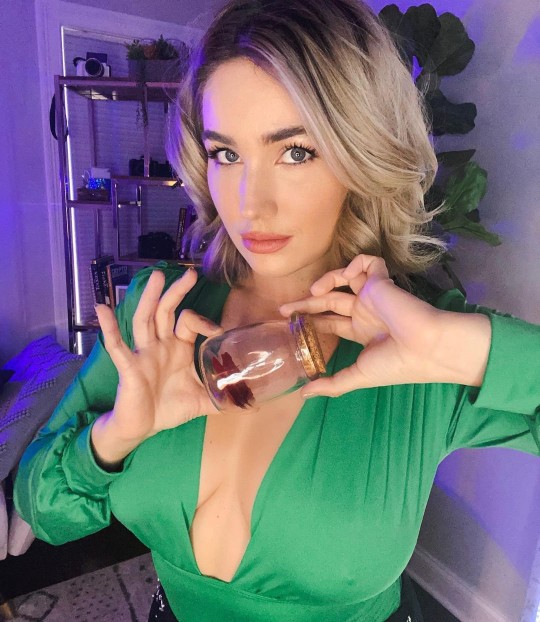
This extraordinary piece by @aliasCHEPE outlines what an HIV diagnosis at 21 meant for him...
...And how his bold move from Columbia to London gave him the opportunity to educate himself, to ‘learn and unlearn what [he] knew about the illness’
🧵👇
trib.al/DhJ5fe9
...And how his bold move from Columbia to London gave him the opportunity to educate himself, to ‘learn and unlearn what [he] knew about the illness’
🧵👇
trib.al/DhJ5fe9
Jose grew up in Cali in the southwest of Colombia and says it always felt ‘magical.’
‘I started understanding my sexual orientation at an early age, and being gay in any heteronormative society, where ‘machismo’ prevails can be an experience of mixed feelings.’
‘I started understanding my sexual orientation at an early age, and being gay in any heteronormative society, where ‘machismo’ prevails can be an experience of mixed feelings.’

But those few thrilling years of being queer and feeling joyful soon dimmed with Jose’s HIV diagnosis.
‘I became depressed and blue. Lonely and withdrawn. My meds kept me alive, but I was half-dead inside.’
‘I became depressed and blue. Lonely and withdrawn. My meds kept me alive, but I was half-dead inside.’
Jose spent the next couple of years avoiding learning, understanding, talking, and living with HIV.
‘Luckily, I had a supportive group of friends, who cared for me at the darkest times when all I wanted was to drink in isolation.’
‘Luckily, I had a supportive group of friends, who cared for me at the darkest times when all I wanted was to drink in isolation.’
Jose visited London in 2013 and immediately fell in love with the sense of anonymity the city gave him. His sister was living here at the time, and with her guidance and support, he decided to move to the UK in 2015 to complete a master’s degree.
‘Before I even arrived, I faced some obstacles trying to get a student loan to pay for my studies. The loan required me to have life insurance, and companies wouldn’t insure me because of my HIV status.’ 

‘In the end, the loan was granted to my mum. I managed to jump through the hoops, but a lot of others living with HIV miss these opportunities in fear of disclosing their status.’
‘Soon after arriving in London, I was immediately surprised by the awful weather and how fast-paced the city was.’
‘The capital has a truly global cultural offer with many things to do, food to try, and beer to drink – but I had so little time and money to do it all.’
‘The capital has a truly global cultural offer with many things to do, food to try, and beer to drink – but I had so little time and money to do it all.’

Jose promptly realised the prominence of anti-immigration narratives within the Brexit discourse and understood that similarly to Colombia, racism and xenophobia were part of the DNA of the country.
‘Dating was initially difficult because I was interested in meeting people and getting to explore the city, but people were only interested in having sex. I had instances of racial discrimination and HIV stigma, particularly using dating apps like Grindr.’
‘Dating opened the doors to an inviting drug scene that I quickly realised I wanted to stay away from.’
Jose realised that he needed to prioritise his emotional and physical wellbeing, so he decided to use his free time differently.
Jose realised that he needed to prioritise his emotional and physical wellbeing, so he decided to use his free time differently.

‘Things like exercising and volunteering were the perfect opportunity to learn more about HIV and improve the relationship with my diagnosis.’
Jose joined an HIV charity as a volunteer, which opened the door to paid professional opportunities and a career in sexual and mental health.
‘Working in HIV and mental health was the key to improving my wellbeing and self-esteem, increasing my sense of community and belonging, and learnt from sharing experiences with others living with HIV.’
Through this process, Jose learnt to focus on the things that he could change.
‘I’ve grasped the importance of self-love and knowledge. Ultimately, I realised I needed to use my voice to advocate for myself.’
‘I’ve grasped the importance of self-love and knowledge. Ultimately, I realised I needed to use my voice to advocate for myself.’
‘I feel physically and emotionally healthy, and I feel part of a wider community of mental health and HIV professionals, activists, artists, academics, and diverse humans who are aware of the challenges ahead.’ 

Jose insists that we won’t get to zero cases of new HIV transmissions in the UK if we don’t take a global and intersectional approach.
Which means decriminalising drugs and sex work, removing hostile environment policies, providing gender-affirming care, ending racism and health inequalities.
‘In order to do that, we will need to centre migrants, trans people, women, prisoners, sex workers and Black people, and remove the existing barriers we face when accessing HIV testing, treatment and care.’
‘As for myself, I will keep working on my wellbeing and nurturing my relationships. I will continue to learn from the stories and experiences of my peers.’
‘I will continue to challenge discriminatory policies and narratives, and advocate for a more kind, inclusive and equal world that respects the experiences of all people living with HIV.’
For the full story 👇
trib.al/DhJ5fe9
For the full story 👇
trib.al/DhJ5fe9
• • •
Missing some Tweet in this thread? You can try to
force a refresh











